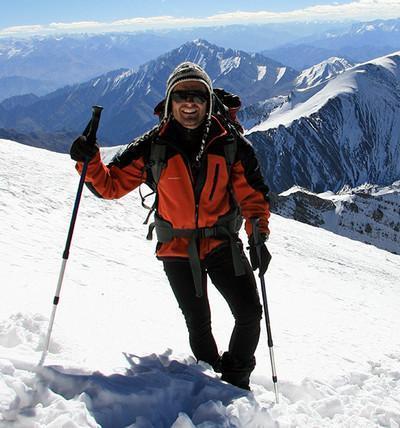Although the second trimester is considered the "sweet spot" for pregnancy, it's still dangerous to ski while pregnant. Your body is still vulnerable to collisions, and the amount of impact you take will determine the likelihood of harm to yourself and your baby. Also, you need to be aware of other risks, including falling.
Altitude Sickness
There are many symptoms of altitude sickness that you may experience while skiing in pregnancy. The good news is that most of these symptoms will clear up within 2 to 3 days, though severe cases can be life-threatening. If you do experience severe symptoms, you should seek medical attention immediately. These symptoms may include nausea, headache, and difficulty with coordination. If you experience any of these, descend to a lower altitude and seek medical attention.
Pregnant women should avoid high-altitude travel. While you are pregnant, your body will work harder to support your growing baby. The lack of oxygen can negatively affect the development of the baby, resulting in growth problems and other complications. According to a survey of Colorado obstetric care providers, the most common symptoms of pregnancy-related altitude sickness included preterm labor and bleeding complications.
Fatigue
Pregnant women can get super fatigued when skiing. It's recommended to be active while pregnant. But sometimes even going up the stairs may make you feel exhausted. It's essential to pace yourself, listen to your body, and stay hydrated. Avoid skiing when you're feeling uncomfortable or overheated. You'll also want to avoid skiing when you're anxious or sore.
Pregnant women should keep in mind that their muscles will be significantly smaller and less flexible than usual. As a result, they'll experience fatigue faster, but that's ok. Regular exercises at home, such as squats, lunges, side reaches, and bends, will help prevent fatigue on the slopes. Depending on your level of fitness and your skills, you can still enjoy skiing during your pregnancy. However, you should talk to your doctor first and ensure that there are no problems with your pregnancy before you begin.
Dehydration
When skiing while pregnant, women should take extra care to keep themselves hydrated and avoid the risks of dehydration. Dehydration in pregnancy can lead to organ failure and shock, and can harm the unborn baby. Several guidelines have been established for water consumption. It is important to remember that pregnant women require more water than they did before pregnancy.
Pregnant women's bodies are more stressed than most other women's, and engaging in strenuous activity can increase their risk of burnout. It is important to keep your body well hydrated to minimize the risks of dehydration and extreme fatigue. This can affect the quality of your skiing experience, and can cause you to be more prone to accidents. However, you can still enjoy skiing and snowboarding during pregnancy if you make certain adjustments and modifications.
Falls
Pregnant women should avoid falling while skiing. This activity can cause injuries and can even result in a miscarriage. It can also lead to an early labor, which could lead to a premature delivery. However, this should not be the only concern during pregnancy. The following are some other risks to consider.
Pregnant women are more susceptible to high-altitude sickness than non-pregnant women. Allowing enough time to acclimatise to the high altitude before skiing is recommended. The high altitude will put stress on the organs. Did you want to hit the slopes while pregnant? Read more from us to learn about it and its risks.
Miscarriage
One of the biggest risks of skiing during pregnancy is miscarriage. It's the least predictable risk of pregnancy, but it can still happen. If you're thinking of taking up skiing during your pregnancy, make sure to understand the risks and what you should do if you're concerned. Not only can skiing cause a miscarriage, but it can also cause injury to you or your baby. Because of the changes your body undergoes during pregnancy, your center of gravity and your sense of balance are more susceptible to injury.
There are several ways to avoid the risk of miscarriage while skiing. First, you should take breaks during your skiing. You should avoid being too tired or dehydrated. You should also stay away from high-altitude terrain because it can increase your blood pressure. Also, if you have a history of gestational hypertension, it may be better not to go skiing during your pregnancy. Another way to avoid miscarriage during skiing is to make sure you talk to your doctor or midwife before you go skiing. They can advise you on safe skiing conditions and help you with your specific needs.
Center of Gravity Change
Pregnancy can cause a woman's center of gravity to shift, making it more difficult for her to stay balanced on the slopes. This is due to the increased mobility of joints and the increased physiologic demands of pregnancy, which can make women feel exhausted and less able to maintain a steady posture. The added weight of the baby can also throw her off balance. The physical stress of pregnancy can cause ligaments to stretch and tendons to loosen, which can increase her risk of injury.
In addition to the increased risk of falling, skiing during pregnancy can also cause an increased risk of injury to the mother and unborn child. Because the uterus is no longer protected by the pelvis, sudden impacts and falls can be much more likely to cause miscarriage. Therefore, a woman should consider the risks before starting her skiing activities.
Reaction Time Changes
When skiing during pregnancy, it's essential to understand that your reaction time will change. While you might still feel sharp, you'll have trouble evaluating the challenges you're facing and reacting quickly enough. This is called "pregnancy brain" and is one of the many changes that occur during pregnancy. As a result, it's important to plan your activities accordingly.
The most common risk for a skier who is pregnant is a fall. Falling onto the ground with the baby inside can damage the uterus and cause premature labor, so it's crucial to be careful. However, you'll need to consult your OB-GYN for advice on the safety of skiing while pregnant.





